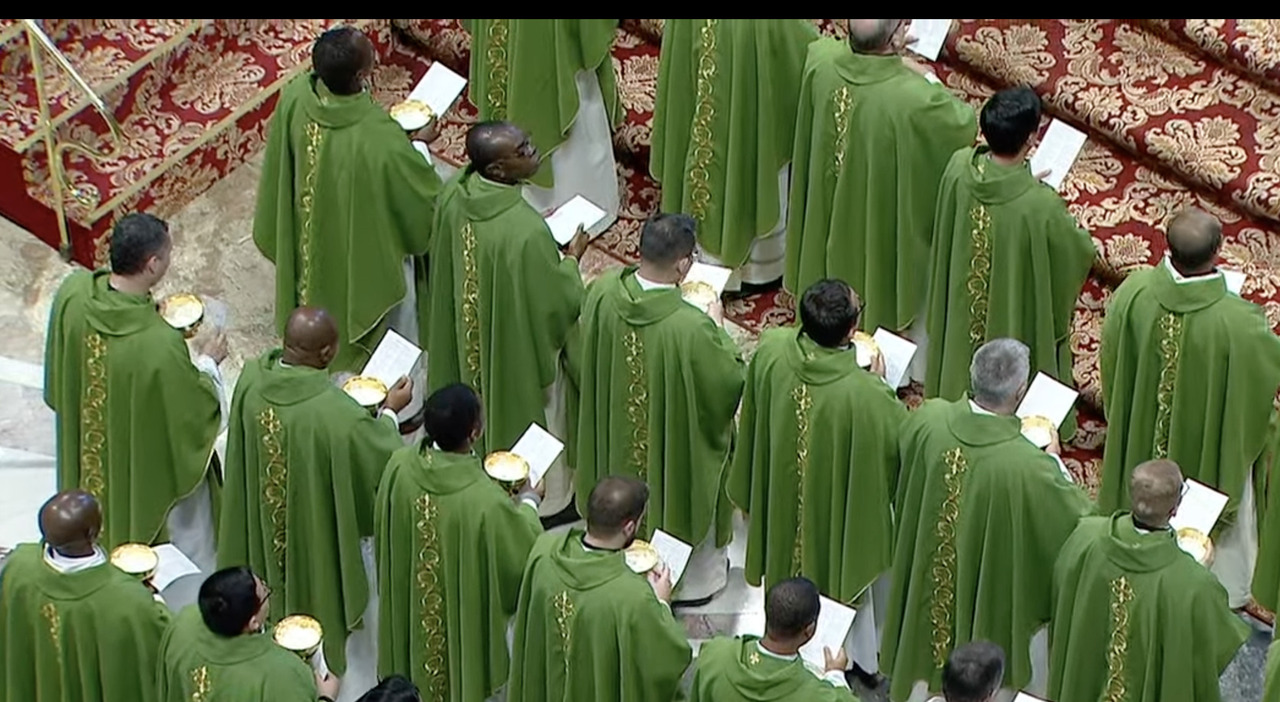The European elections of June are around the corner, and in some dioceses, the Church is taking precautions to prevent the electoral campaign from exploding in the parish, causing further divisions among the faithful. In Reggio Emilia, a historical stronghold of the Pd, the situation is further complicated because the European coincide with the administrative and the center-right hopes to advance and reach at least the ballot. Therefore, Bishop Giacomo Morandi - already secretary of the Dicastery of Faith and signatory of a measure against blessings to gay couples then canceled two years later by the Fiducia Supplicans - sent a letter to his parish priests to explain in detail how they should behave with those who intend to run for office, emphasizing that it is appropriate to 'arrange resignations from the roles of responsibility covered in the diocese or in the parishes; therefore, diocesan pastoral assignments or those in parish councils will certainly be declined. On this occasion, I renew this prohibition also for those who hold ministerial mandates'.
Regional elections, in Sardinia the test (European) of Meloni and Schlein
Catechists, volunteers, acolytes, officials, members of pastoral and parish councils if they intend to get elected and run for one party or the other are forbidden to do so using ecclesiastical structures. On the website of the diocese Morandi, to clear the field from any possible misunderstanding, added a very long reflection accompanied by a series of FAQs, questions and answers, to clarify. 'I would not want, in fact, that the churches and parishes can become places of electoral campaign' writes the bishop recently elected in place of Cardinal Zuppi at the head of the Emilian-Romagnolo episcopate and much listened to in his area.
Political polls, Fratelli d'Italia at 28.5%. Stable Lega and Pd, half a point down M5S
Once the recipients of the provision were clarified, Morandi wanted to recall Christians to the 'necessary commitment' for the defense of the common good - a principle often formulated also by Pope Francis - according to Montini's definition that politics is the highest form of charity.
Here are the orientations of the Emilian Church that could soon be adopted elsewhere and lead the way in other dioceses:
1) Must Catholics continue to engage personally in political competitions? Yes, certainly. However, it is necessary to bear in mind the distinction of roles and services rendered in the ecclesial community from those in the civil sphere. Pope Francis wrote: 'politics, so denigrated, is a high vocation, it is one of the most precious forms of charity, because it seeks the common good' (Evangelii Gaudium, 174).
2) Why did the Archbishop intervene on the theme of political elections? He intended to remind those who are providing services in the Church to engage in this exclusively. It is then essential that the typical activities of the Christian community (worship, catechesis, charity and mercy) are not confused with party promotion activities.
3) Therefore, catechists, readers, acolytes and extraordinary ministers of the Eucharist, if they intend to run for the political elections, will they have to suspend their service? Yes. In this way, opposition and tensions resulting from belonging to one or the other of the alignments will be avoided.
4) How to deal with doubtful cases? If the person wants to run for office, it will be at least inappropriate for him to maintain roles in the parish. This direction must be mediated by the parish priest, in a dialogue, not as an order given from above.
5) Does this also apply to deacons? Certainly. Canon law expressly provides for clerics: 'Do not have an active part in political parties and in the direction of trade union associations (...) '(Can. 287 §2).
6) Is it possible to welcome in the church or in the parish environments, as well as their pertinences, meetings or debates in view of the elections? No. Such environments must remain places dedicated to worship, catechesis and charity.
European elections, Elly Schlein's pressing on Emiliano, Bonaccini and De Luca
Such an explicit intervention, certainly unprecedented, underline several prelates, was only dictated by prudence. Some local newspapers have improperly called it a 'non expedit' without taking into account the complicated period that the Church is experiencing internally where it is easy to come across opposition or divisions. Adding other problems to Morandi must have seemed excessive.
Pope Francis a few years ago, returning from a trip, to the journalists who asked him for lights on Italian politics answered cautiously so as not to trigger storms. 'I don't understand Italian politics: only that fact of the twenty governments in twenty years, a bit strange, but everyone has their own way of dancing the tango... you can dance in one way or another and politics is danced in one way or another. I have met two Italian presidents, of the highest level: Napolitano and the current one. Then I don't know the other politicians. On the last trip I asked one of my secretaries how many governments Italy has had in this century: twenty. I can't explain it. I don't condemn, nor criticize, I can't explain it, simply. If governments change like this, there are many questions to ask. Being a politician, a great politician, is a difficult road. A politician who puts himself on the line for the values of the homeland, the great values, and does not put himself on the line for interests, the armchair, the comforts. Countries, among them Italy, must seek great politicians, those who have the ability to do politics, which is an art. It is a noble vocation, politics. We must fight to help our politicians maintain the level of high politics, not the low level politics that does not help at all, and indeed pulls down the state, impoverishes'. However, electoral campaigns remain outside the parishes.
This article is automatically translated
